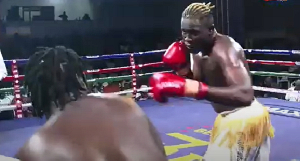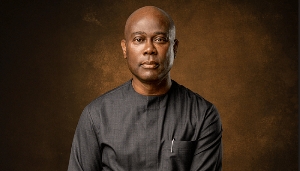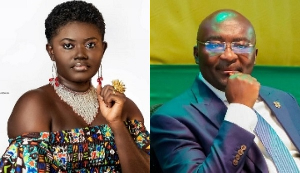The 1994 Ghanaian constitution vested unprecedented power in the President's hands during the transition from military to civilian leadership. The assumption was that amendments or legislative checks and balances would prevent abuse of this power.
However, the reality has often been different, with the President's party holding a majority in parliament, allowing them to exercise authority without adequate restraint.
This concentration of power has led to excessive public spending and borrowing, making Ghana one of the most indebted countries in sub-Saharan Africa. Unfortunately, these borrowings have not significantly improved the lives of Ghanaian citizens. Much of the borrowed funds have been siphoned off through offshore banking systems or used for kickbacks, further eroding the nation's economic prospects.
To address this issue and minimize presidential power to avert economic collapse, citizens have a small but significant way to act: Voting Skirt and Blouse. This approach involves splitting votes between presidential and parliamentary elections, promoting power balance and accountability.
By voting for different parties in these elections, citizens can prevent one party from having unchecked authority. It is crucial for the electorate to stay informed about candidates and issues and to advocate for constitutional reforms and increased civic engagement to address the challenge of excessive presidential power and its potential economic consequences, all while demanding transparency and accountability to ensure that borrowed funds genuinely benefit the people.
In "The Spirit of the Laws", Montesquieu, an Enlightenment philosopher, presented a groundbreaking concept that would significantly influence democratic governance principles: the separation of powers and the need for checks and balances. This concept has since become an integral part of modern democratic systems. It serves as a foundational framework for ensuring power is not concentrated in one branch of government, preserving democracy's essence.
Montesquieu recognized that power concentration in a single branch of government could lead to authoritarianism and democratic erosion. To prevent such a scenario, he proposed dividing the government into three distinct branches:
legislative, executive, and judicial, each with separate and defined functions.
The first strong case for separation of powers and checks and balances lies in the principle of preventing tyranny. When one branch gains excessive authority, democracy is compromised. The legislature formulates laws, the executive implements them, and the judiciary interprets and enforces them. This division ensures that no single entity can wield absolute power, safeguarding citizens against potential abuses.
Moreover, the system of checks and balances reinforces mutual accountability among the branches. Each branch can scrutinize, challenge, and limit others' actions, maintaining equilibrium. This mutual scrutiny creates a more resilient dynamic system less susceptible to institutions or individual whims.
In a so-called democratic government such as Ghana, the importance of these principles becomes evident in light of the concentration of power in the executive branch, particularly the presidency. The Ghanaian Constitution did not regulate presidential powers, creating the potential for unchecked authority.
The Ghanaian Constitution has been criticized for granting substantial powers to the President. This includes control over the executive branch and significant influence in appointing key government officials and judges. The constitution does not explicitly regulate aspects such as the number of cabinet members the President can appoint or the creation of districts and regions.
This has resulted in an unchecked expansion and influence by the executive. The absence of specific regulations for financial prudence and efficiency in government operations can be worrying.
Without clear guidelines, there is a risk of mismanagement of public funds and resources. This underscores the need for immediate measures to balance power while considering constitutional reforms.
"Skirt and Blouse" voting, where citizens deliberately split their ballots between different parties, offers a short-term remedy. While it may not be a perfect solution, it aligns with Montesquieu's principles by introducing separation and balance.
First and foremost, "skirt and blouse" voting acts as a mechanism to avoid power concentration in one party, thereby reducing authoritarian rule. Allowing a different party to control the legislature enforces power separation in the short term. This mitigates the risk of one party dominating all branches and immediately establishes checks and balances.
Furthermore, "skirt and blouse" voting promotes accountability and efficiency in government, aligning with Montesquieu's principles. When a ruling party knows it does not have unchecked power, it governs more responsibly. Fear of losing the legislative majority can compel the President to act more balanced, adhering to good governance principles.
In the grand scheme of democracy, "skirt and blouse" voting, although temporary, serves as a democratic tool that empowers citizens to actively participate in shaping their government. It fosters public engagement and accountability, aligning with Montesquieu's vision of a political system based on citizen involvement.
In conclusion, Montesquieu's ideas in "The Spirit of the Laws" are as relevant today as in the 18th century. Separation of powers and checks and balances are essential for safeguarding democracy and preventing authoritarianism. While the Ghanaian Constitution may lack certain regulatory provisions to balance presidential powers, "skirt and blouse" voting offers a short-term solution that aligns with Montesquieu's principles.
Opinions of Sunday, 1 October 2023
Columnist: Dr. Stephen Gyesaw















